Visualizing the social impact of soccer support activities. Kirin's vision for the future with JFA
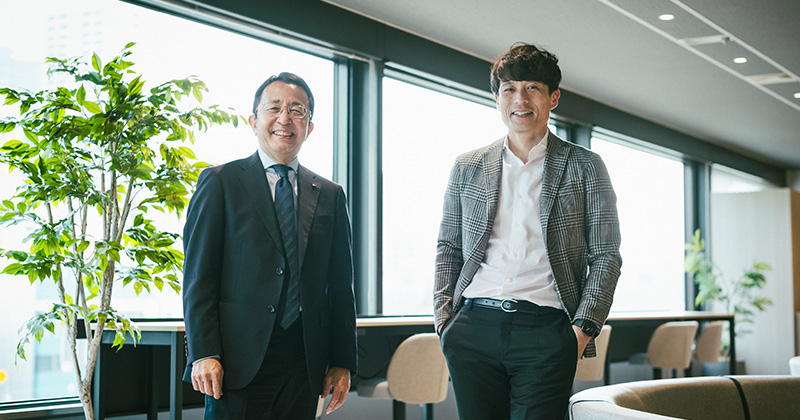
Kirin has adopted CSV (Creating Shared Value/creating value that can be shared with customers and society) as its management policy, aiming to become a leading CSV company worldwide through its business activities.
Kirín's history of supporting soccer began 46 years ago in 1978. Since 2023, Kirín has been an official leading partner of the Japan Football Association (JFA), and currently supports everyone involved in soccer, from children to adults, including the Japanese national soccer team, while also working to solve social issues related to the community, one of its CSV purposes.
As soccer culture develops and its activities expand, soccer's influence on communities continues to grow significantly. In recent years, Kirin has focused on the global trend of "visualizing the value created by sports." Using the SROI *1(Social Return on Investment) metric, Kirin has undertaken the first ever attempt to quantify the social impact generated by its soccer support activities.
A single ball can spark communication, connect people, and form communities, spreading joy. We want to understand soccer's positive impact on society and how we can hand over the visualized results to the future.
Hiroshi Fujikawa, Executive Officer in charge of CSV Strategy at Kirin, and Tsuneyasu Miyamoto, who played for and coached the Japanese national soccer team and was appointed the new president of the JFA this spring, discussed the social value of soccer supporting activities.
*1 A stakeholder participatory evaluation method quantifies and visualizes the social, economic, and environmental changes (benefits) generated by business activities by converting them to market value. SROI measures the benefits created relative to costs, and the benefits converted into monetary value are calculated by dividing the benefits by the inputs (costs) incurred in the business activities.
A history of supporting soccer together
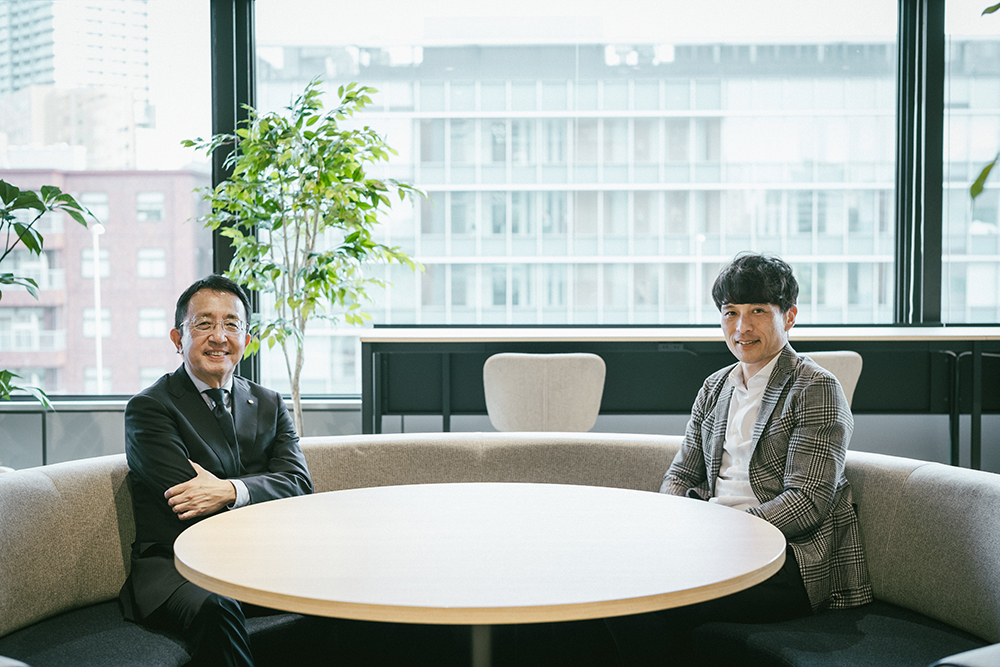
Fujikawa: The relationship between Kirin and the JFA dates back 46 years, but when I joined Kirin in the 1980s, soccer was not as popular as it is today, and it was a difficult time known as the "winter era." Looking back on the progress of Japanese soccer to its current state, I am filled with emotion.
Miyamoto: I was born in 1977, so the collaboration between Kirin and the JFA began just one year after I was born. Despite the challenges when it was said that Japan would find it difficult to compete on the world stage, we have grown to where we are today. Through the accumulation of friendly matches, the launch of the J League, the successful bid to host the 2002 World Cup, and overseas training camps, I have witnessed the growth and development of Japanese soccer against various situations.
Not only the players but also the coaches have been strengthened, creating a synergistic effect that has made the Japanese national soccer team significantly stronger. However, I feel that we couldn't be where we are today without the support of our partners, including Kirin. Without their support, we couldn't even go on overseas tours.
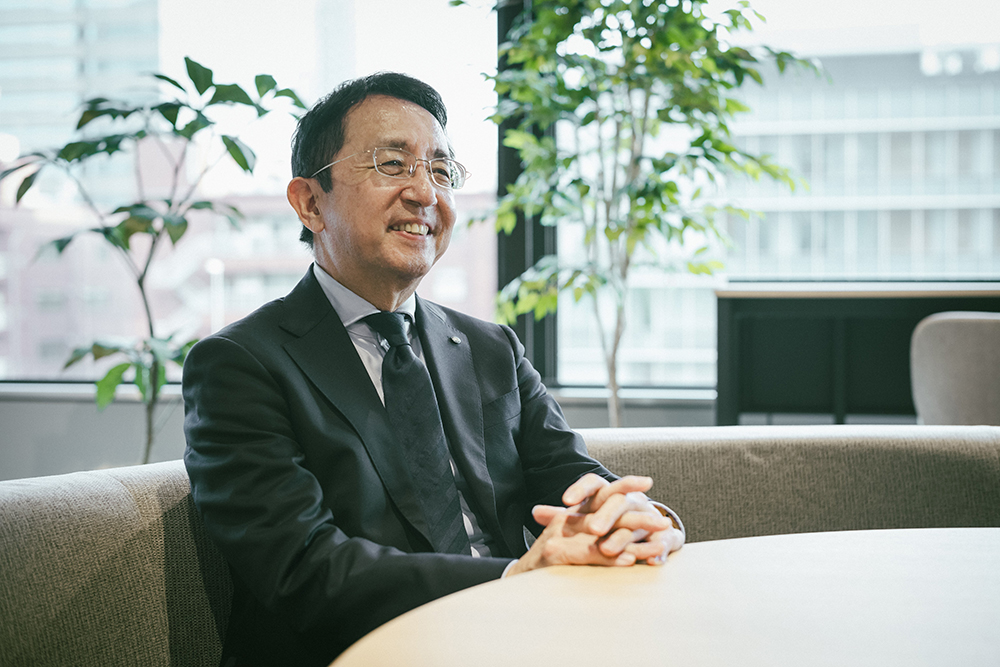
Fujikawa: As we worked together, the scope of our activities expanded. For example, we could participate in activities beyond simply supporting the Japanese national soccer team, such as the JFA Kirin Smile Field event held to support disaster recovery efforts and the JFA Kokoro Project aimed at contributing to the physical and mental growth of children. These experiences have left a lasting impression on me.
Since the start of the J. League, soccer has grown in popularity, and many people who started playing soccer at that time are now working adults who continue to support the sport. This is also of great value to companies. I feel that Kirin's corporate brand is also highly regarded for its support of soccer.
Miyamoto: I am happy that we can contribute in that way. Until now, our relationship has been simple, with one side giving support and the other side responding with good performance. But now I think it is changing into a synergetic relationship where we are co-creating something we both aim for.
Thanks to our long-standing partnership, we can respond well to the needs of today's society. For example, by introducing the concept of walking soccer at the JFA x Kirin Kirin Family Challenge Cup, we were able to make it an event that everyone could enjoy, regardless of age, gender, soccer experience, or disability.
Fujikawa: Connecting people is an important philosophy for both JFA and Kirin, and becoming an official leading partner in 2023 is proof of that. Through our long-standing relationship, we have evolved into partners that support everyone involved in soccer and have created value together.
What sports and communities nurture
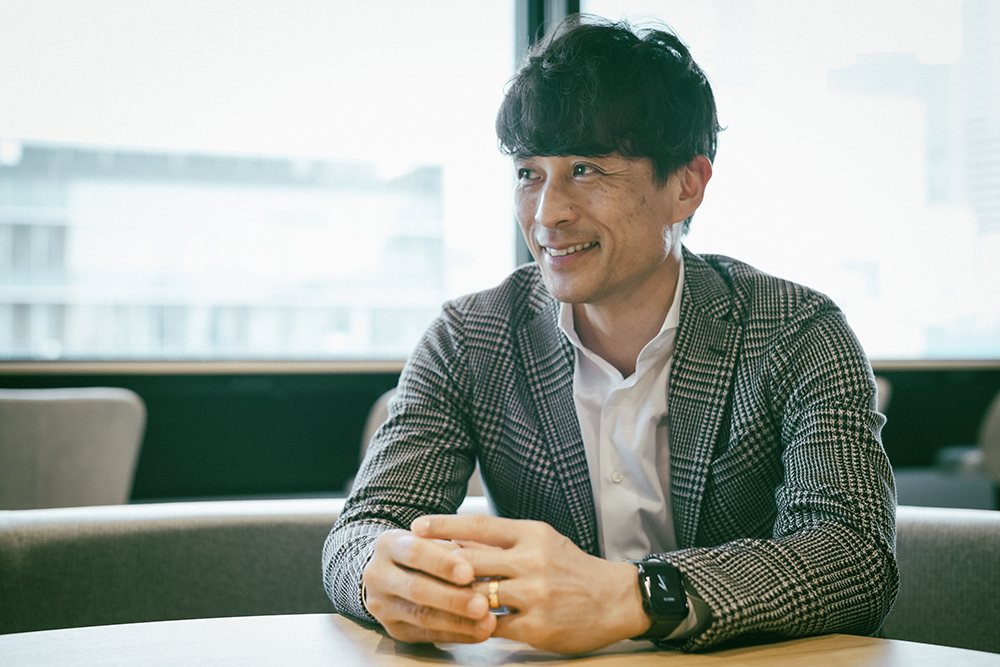
What has impressed you most about your collaboration with Kirin so far?
Miyamoto: Playing walking soccer together was a very refreshing experience for us, being team members regardless of age or gender. It's not often that you get the chance to work hard with people you don't know, and it made me realize once again how interesting soccer is.
There's a sense of unity when you are part of a soccer team or community working toward a common goal. As a player, I've experienced that feeling of unification, and it's been a great experience that has shaped my values.
Fujikawa: Each region has soccer communities that create connections between people. The JFA has connections with all 47 prefectural associations, including the J. League. The impact of the soccer community is truly amazing. There are connections all over the country, which leads to the development of the sport.
Miyamoto: That's right. The value of sports lies not only in bringing joy through games and energizing society, but also in their educational role. Through soccer, I learned many important things, such as cooperating with others, respecting others, following rules, and fighting with team spirit.
These are important lessons for living and contributing to society that cannot be learned through studying at school alone. That is also a significant value that sports bring.
The significance of visualizing the social value of supporting soccer
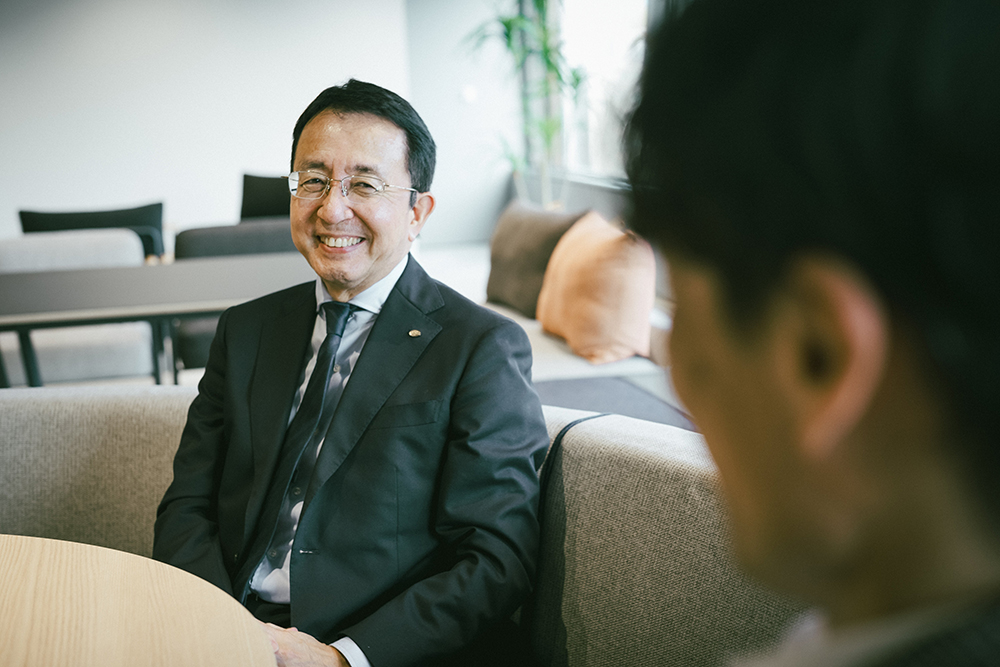
SROI analysis was conducted for the first time at Kirin to visualize the social impact of sports. By quantitatively evaluating not only the economic value but also the social value created by our activities, we plan to use the results to improve various soccer supporting activities in the future.
Fujikawa: As a company, we value our relationships with six stakeholders: our customers, shareholders and investors, the global environment, our business partners, the community, and our employees. The Kirin Group's positive impact on the community has received significant attention from them.
Business activities generate both economic and social value and contribute to society and the environment. We felt that an indicator to measure and communicate this to the world was necessary, which led us to adopt SROI.
We had previously conducted interview surveys to measure the effectiveness of our soccer supporting activities. Still, we believed that analyzing both quantitative and qualitative data from a two-way perspective would allow us to measure the value of our efforts more three-dimensionally. In order to quantify this, we first developed a logic model within the company that structured how our activities influence social change, and then evaluated several important and measurable outcomes (the effects of our activities).
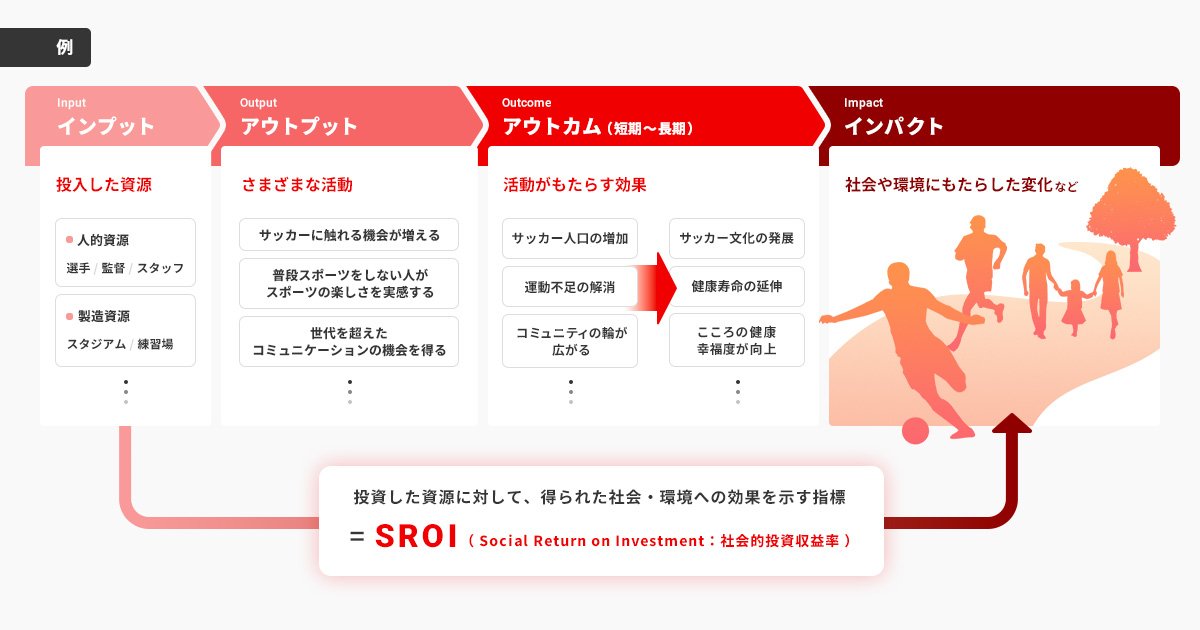
Example of a logic model for measuring social impact
Miyamoto: The JFA also adopted SROI analysis for reasons similar to Mr. Fujikawa's. In any sport, it is essential to visualize and publicize the value of our activities and our collaboration with partners to achieve sustainable development.
For example, when we want to develop female leaders, we quantify the impact of holding women's soccer tournaments and events and assess what kind of impact they have. This makes it easier to communicate the value of the project to partner companies and other stakeholders, and it also serves as a basis for decision-making.
If this approach becomes the standard in the sports world, a higher number of new relationships will form, and horizons will expand. It will also be helpful when reviewing our projects.
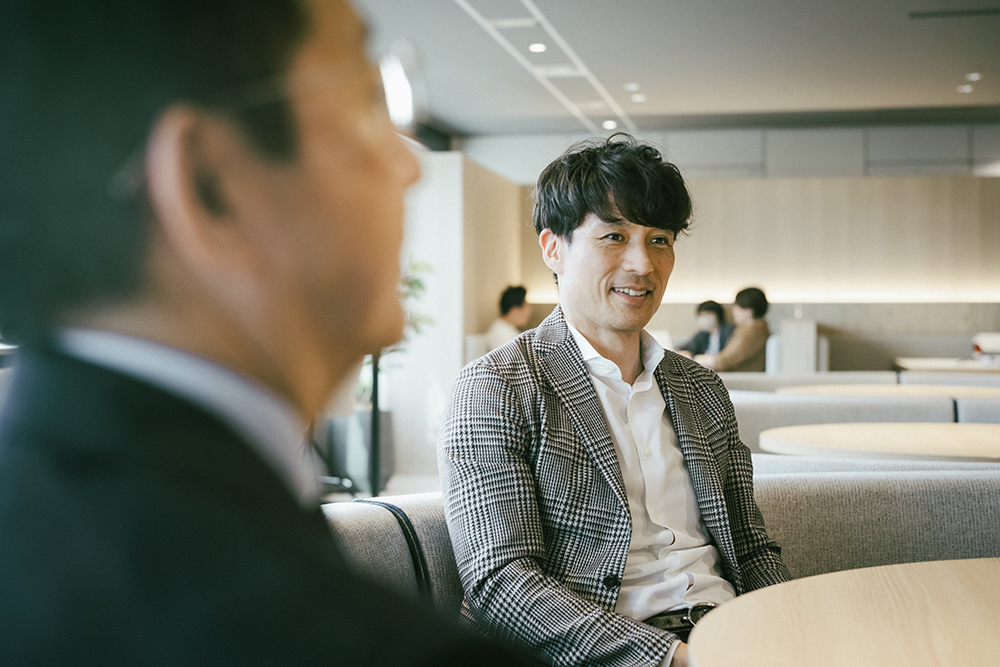
Fujikawa: Yes, I agree. It makes it easier to form hypotheses and identify areas for improvement. Currently, we are still at the stage of establishing indicators for each initiative, and there is no standard or consensus on the quantitative value obtained from impact measurement, so there are still many issues to be addressed.
As this approach becomes more refined, it becomes easier to communicate social value, companies will be able to take on new challenges, and the sports world as a whole will become more exciting.
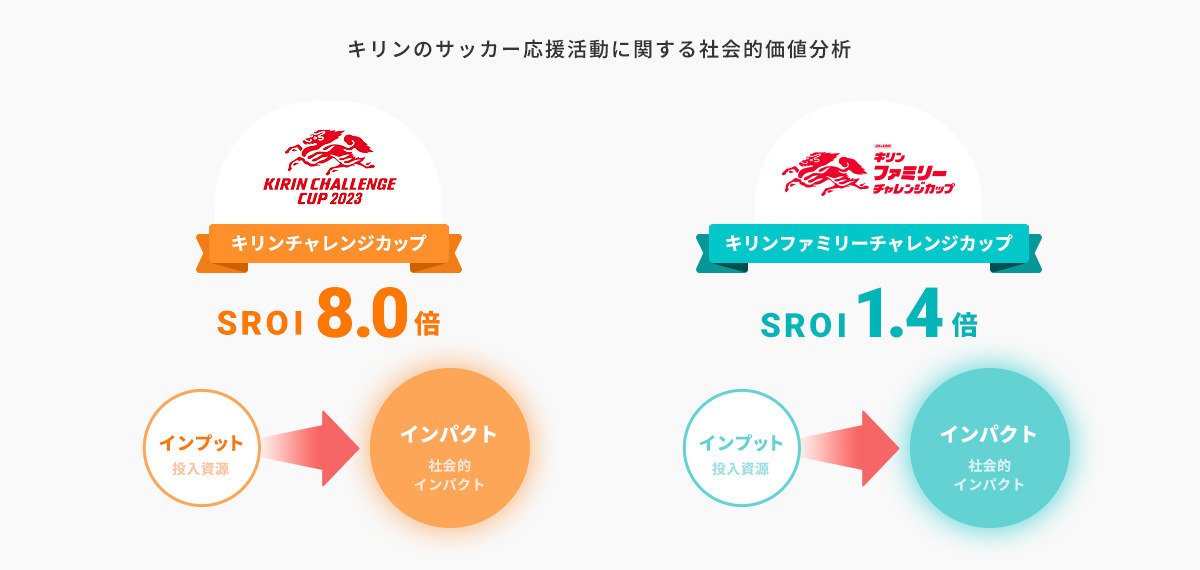
Summary of analysis results
Kirín Challenge Cup: Through supporting the Japanese national soccer team, we quantified the impact on a wide range of people, focusing on "energy for tomorrow," "expansion of community circles," and "deepening of bonds," which resulted in an SROI ratio of 8.0:1.
Kirin Family Challenge Cup: Through walking football, we quantified impacts centered on "deepening family bonds" and "expanding community networks" for participants, which resulted in an SROI ratio of 1.4:1.
Today, due to the limited number of program participants, the ratio is relatively low compared to the Kirin Challenge Cup. The analysis was based on available data and the scope of quantifiable impacts was limited, yet the SROI ratio exceeded 1.0, confirming that the program was very effective, exceeding the costs incurred.
Fujikawa: The analysis showed that the Kirin Challenge Cup has a significant social impact in terms of expanding community networks, changing attitudes toward the future, and motivating people to be more active tomorrow, which indicated an SROI ratio of 8.0:1.
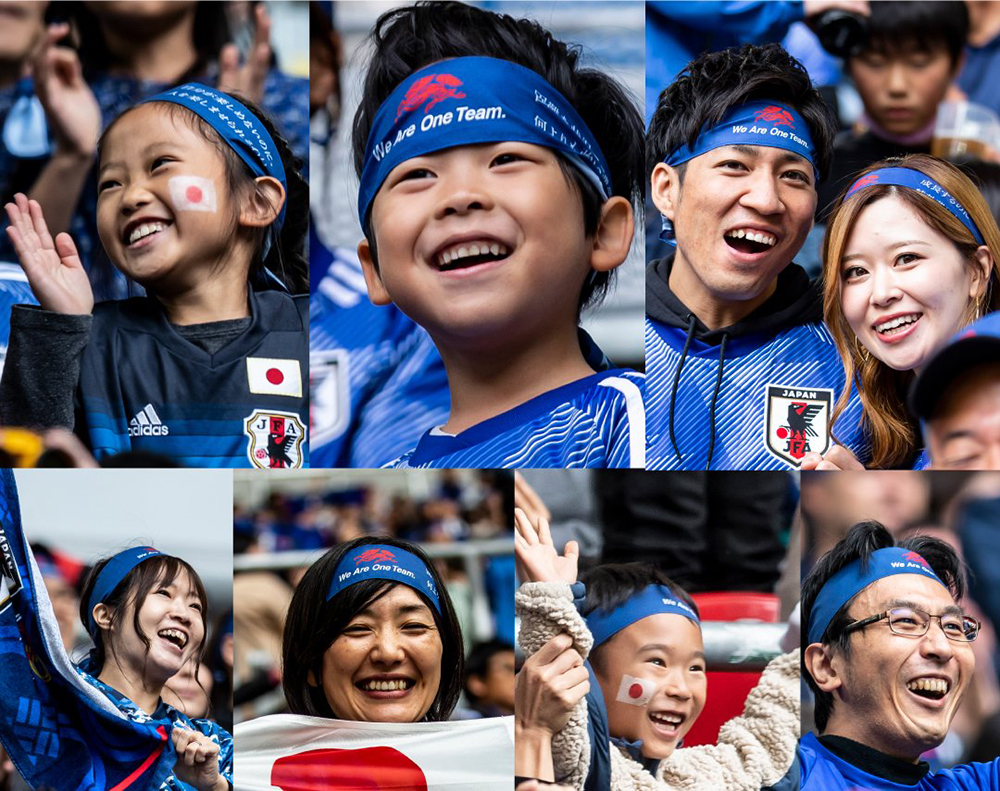
These results reaffirmed that our long-standing support for the Japanese national soccer team has a significant social impact. Moreover, we gained some new insights.
For example, the "Kirin Family Challenge Cup," in which previous surveys highlighted the deepening of bonds between families and friends, had the SROI analysis also revealing an unexpected benefit: an enhanced awareness of diversity, including acceptance of differences in age and gender. Discovering such a new benefit was a valuable insight
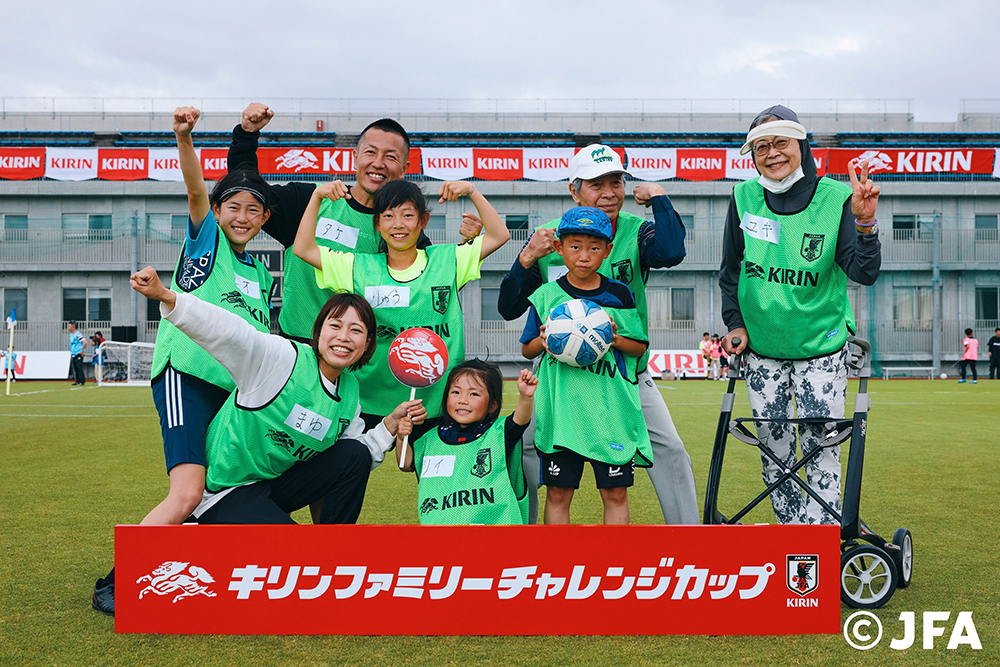
Miyamoto: With the advancement of technology, data and figures are becoming more persuasive in the world of sports. By utilizing SROI as an indicator, we can collaborate with various partners and expand the scope of our activities, which will undoubtedly create new value. We want to develop indicators that are not only beneficial to us but also to society as a whole. We aim to enhance the value of all sports, not just soccer.
Passing on to the future of children
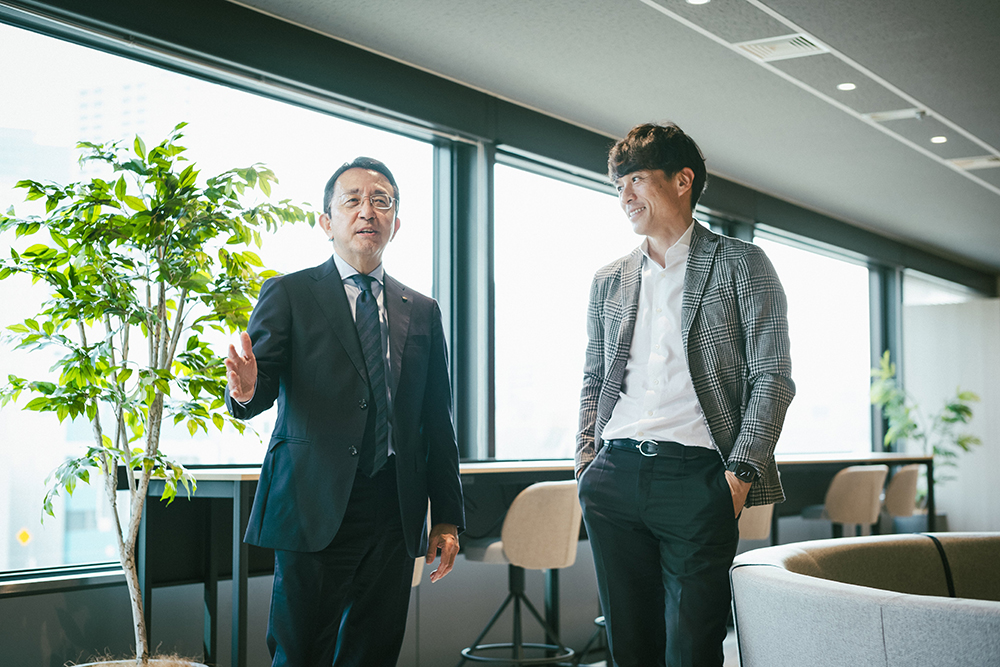
What kind of future do you hope to realize through the soccer supporting activities of the two companies?
Fujikawa: As a company that promotes CSV management, we will continue to engage in community activities such as the Kirin Challenge Cup and the Kirin Family Challenge Cup.
Community-based initiatives contribute not only to the development of the community but also to soccer culture, and if children are exposed to sports daily, it will expand their potential to be active global members. In addition, we have been involved in reconstruction support through soccer, but we also want to support children who are unable to play soccer for various reasons and to contribute to the revitalization of the community in areas such as the environment and health.
Miyamoto: Kirin's soccer commercial*2 "Start Here" depicts the future the JFA wants to realize. That image, in which a single ball connects people, encapsulates the world and message that I and the JFA are aiming for. It expresses the joy of creating something together with diverse people, regardless of age, gender, or other differences.
*2 This commercial is currently unavailable.
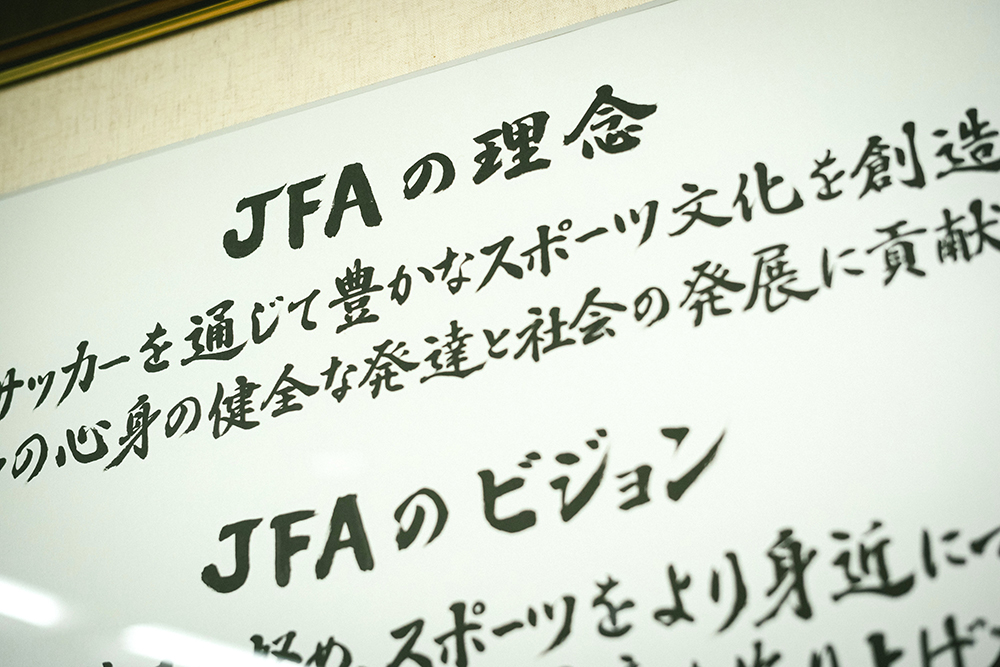
Miyamoto: The educational benefits of sports and their role in society will continue to grow in the future. To achieve this, we need to make the existing value visible and create a sustainable cycle. We can take on this challenge with Kirin, with whom we have partnered.
Fujikawa: Thank you very much. We will continue to work together on various activities to positively impact society through our support for soccer.
Miyamoto: Yes, that's right. This is something that resonates with me personally and with the JFA's philosophy, but I want to create a society where children can enjoy not only soccer but also baseball, basketball, and other sports.
Fujikawa: The JFA's philosophy is comparable to Kirin Group's community purpose to "create connections between people and generate positive energy for the mind, body, and society." As people who share the same vision for the future, let's work together through sports to create connections and a heartfelt society.
Profile
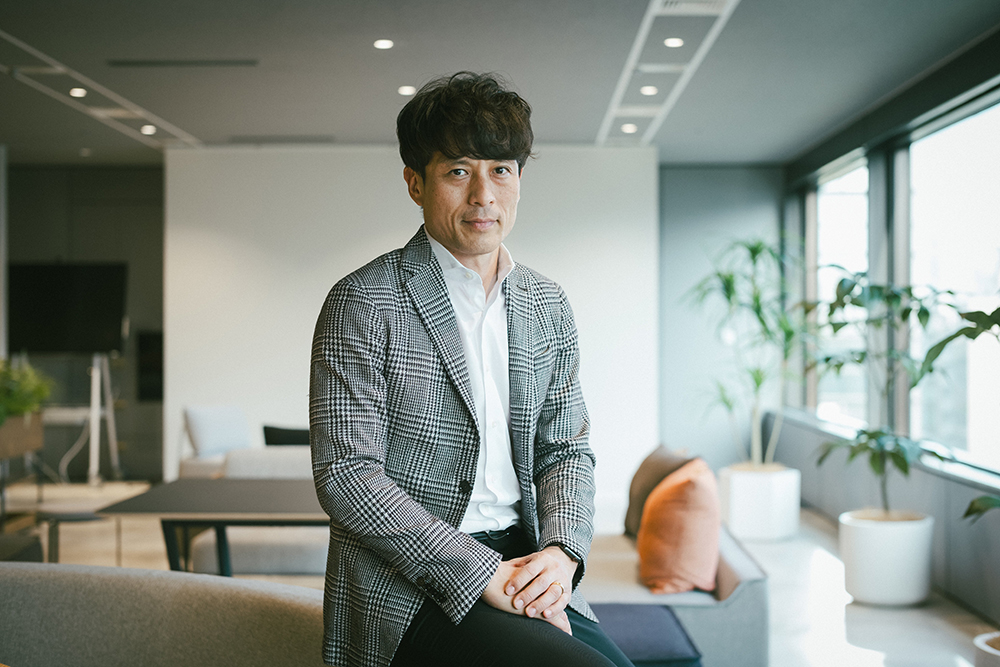
Tsuneyasu Miyamoto
Born in 1977 in Osaka Prefecture. Graduated from Doshisha University with a degree in economics. Signed a professional contract with J. League club Gamba Osaka in 1995. Selected for the Japanese national soccer team in 2000 and served as captain of the Japanese national soccer team for many years. In 2013, he became the first Japanese former professional athlete to complete the FIFA Master program in sports science. From 2018 to 2021, he served as head coach of Gamba Osaka. In March 2024, he assumed the position of President of the Japan Football Association (JFA).
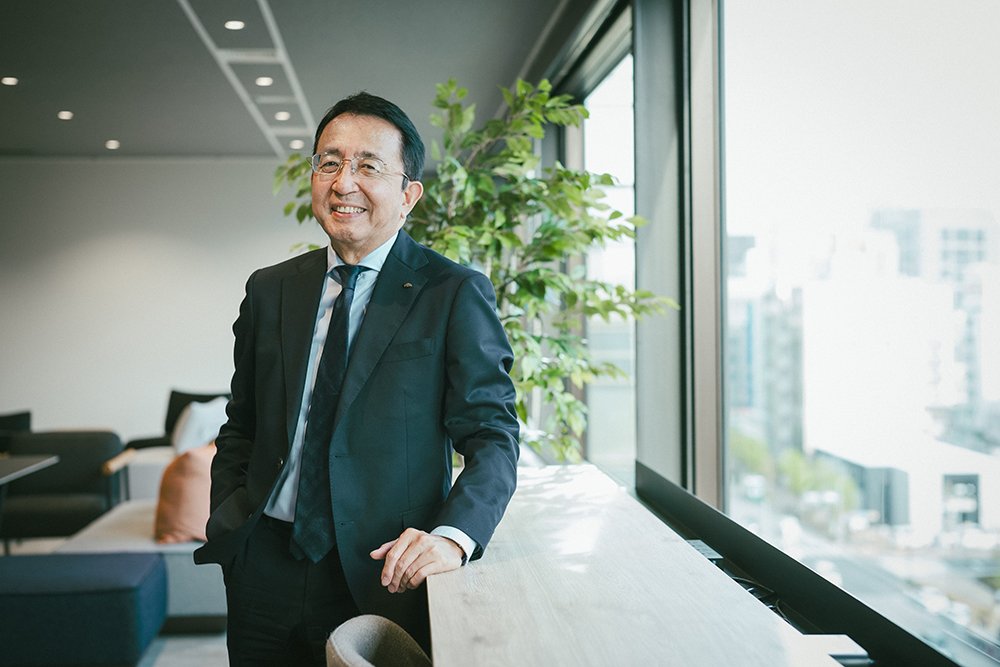
Hiroshi Fujikawa
Executive Officer and Head of CSV Strategy Division at Kirin Holdings Company, Limited. Joined Kirin Brewery Company, Limited in 1987. After working in sales, overseas assignments, marketing, and secretarial roles, he was involved in multiple M&A projects and contributed to the internationalization of the Kirin Group. He was stationed in Australia, Singapore, Myanmar, and other countries, where he was involved in top management roles and business operations. He became Director of Human Resources and General Affairs at Kirin Holdings Co., Ltd. in 2017, and after a three-year secondment to the Japan Football Association (JFA) from 2019, he assumed his current position as Head of CSV Strategy in March 2022. He aims to build trust with stakeholders in Japan and overseas and grow Kirin Group into a leading CSV company worldwide by 2027.
*Affiliations (contents) are as of the date of publication.